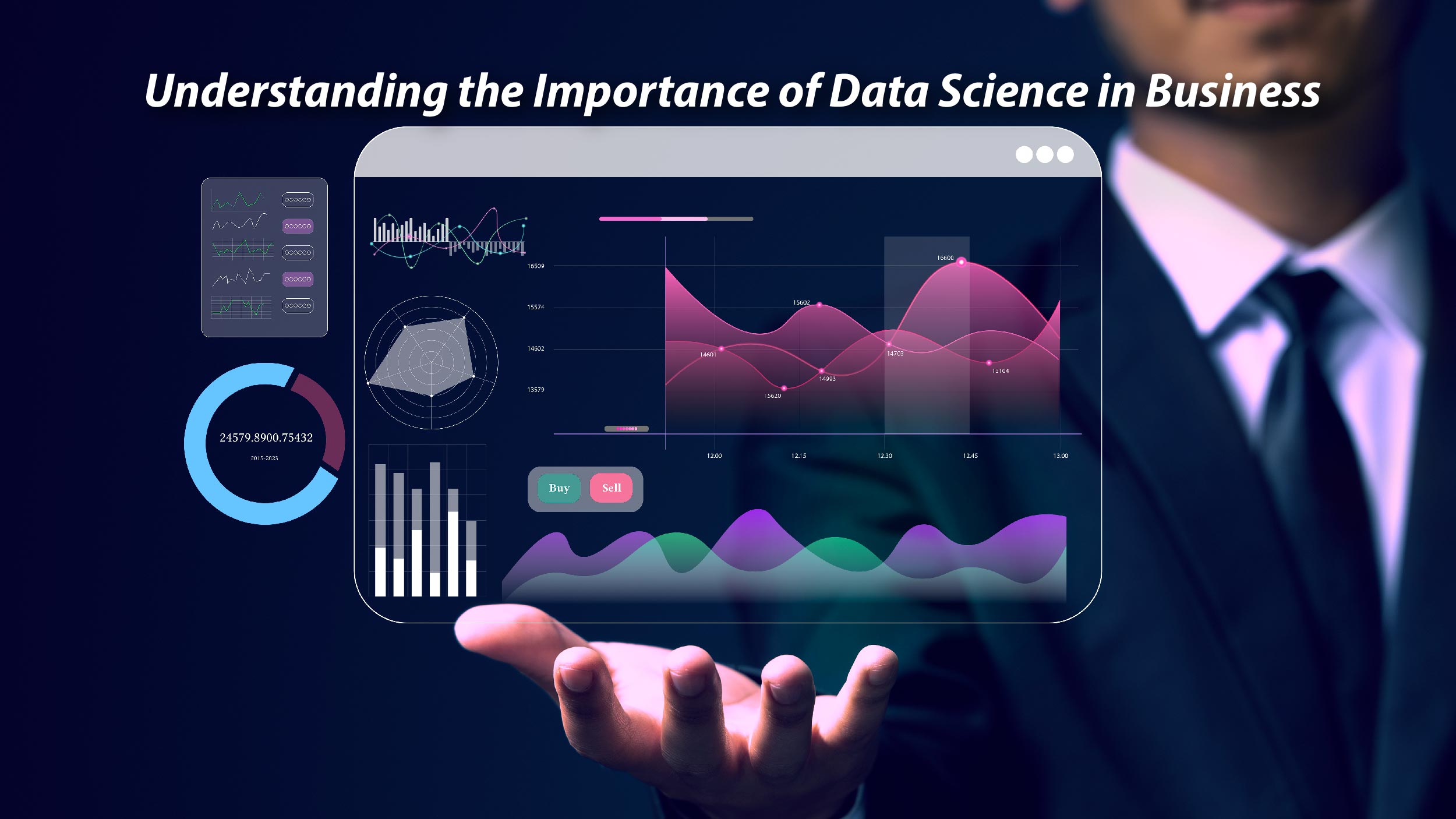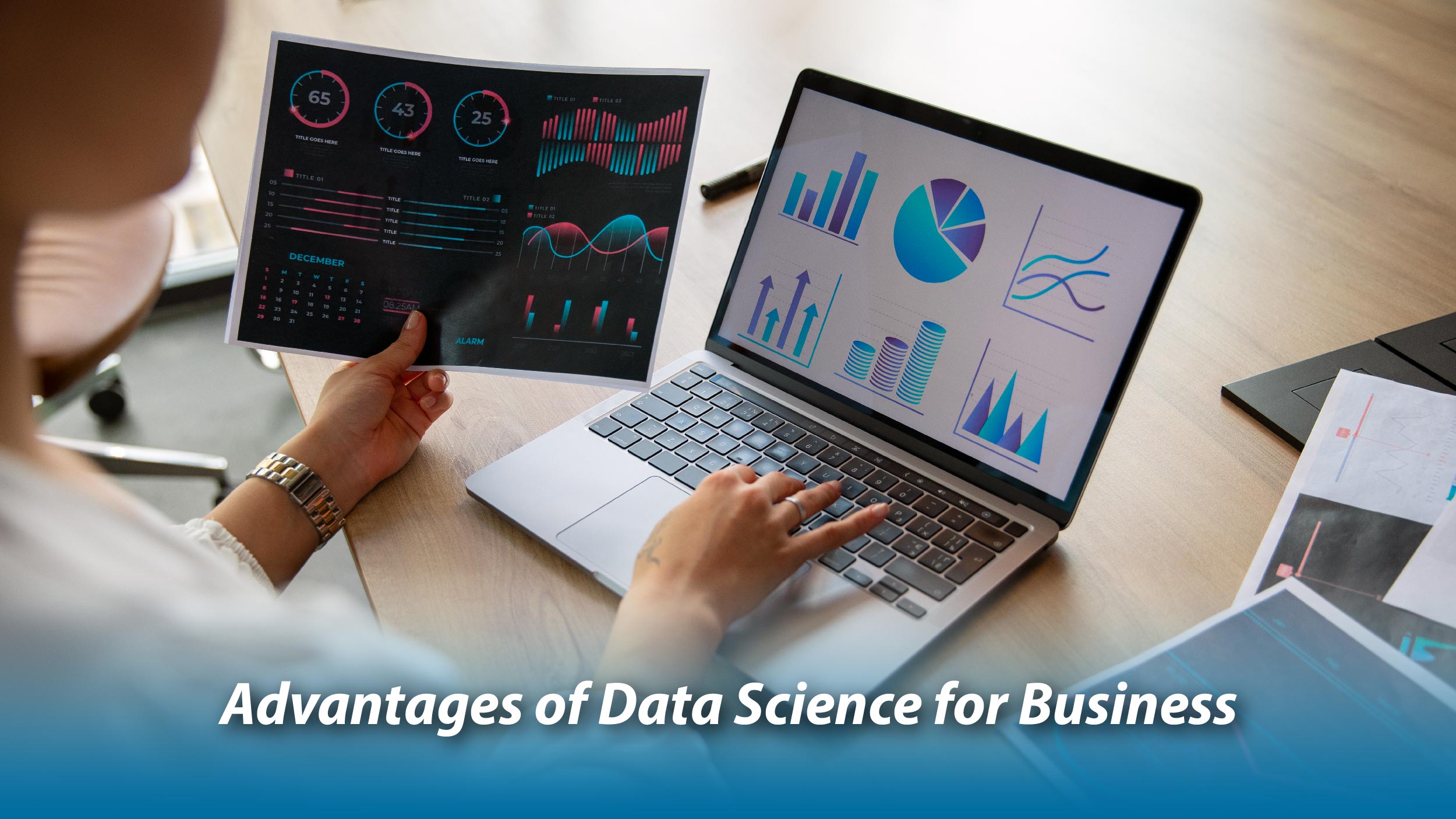In the contemporary landscape driven by data, data science transcends mere buzzword status; it has become an indispensable element across various sectors. The ability to derive actionable insights from data has evolved from being a competitive advantage to a strategic necessity, addressing the challenges posed by information abundance.
In the business realm, data science proves invaluable as it guides organizations through the intricate process of transforming raw data into actionable insights. This blog delves into the diverse applications of data science in business, exploring its role in fostering innovation, facilitating data-driven decision-making, and contributing to the establishment of a more efficient and predictive future across a multitude of fields.
Let’s get started!
What is Data Science in Business?
The application of data analysis and statistical techniques to extract valuable insights and make informed decisions that drive business growth and success is known as data science in business. It involves utilizing advanced algorithms, machine learning, and statistical modeling to analyze large volumes of data and uncover patterns, trends, and correlations.
By utilizing data science, businesses can acquire a more profound understanding of their customers, optimize operations, improve marketing strategies, enhance product development, and make data-driven decisions across various aspects of their organization. Data science empowers businesses to identify opportunities, mitigate risks, and gain a competitive advantage in the market.
For instance, Lunewave, a sensor manufacturing company, utilized data science and machine learning to enhance sensor technology in driverless vehicles. This approach bolstered safety, reliability, and accuracy, while data-driven improvements also optimized their 3D-printed sensor manufacturing process.
Now that you are familiar with the concept of data science in business, let us explore the benefits this technology offers.
Understanding the Importance of Data Science in Business
 Data science in business intelligence has been developed as a ground-breaking discipline essential for deriving insights from data and revolutionizing industries. It is not an exaggeration to state that data science is the foundation for modern industries.
Data science in business intelligence has been developed as a ground-breaking discipline essential for deriving insights from data and revolutionizing industries. It is not an exaggeration to state that data science is the foundation for modern industries.
- Data volume
First of all, a data explosion has resulted from the development of digital technologies. Digital processes, social media interactions, and online transactions all produce data. However, we can only benefit from this data if we can determine important findings from it. That is exactly where data science comes into play.
- Value-creation
Second, data science is more than just data analysis, it is also about interpreting and utilizing this data to guide operational efficiency, forecast future trends, and help businesses make informed decisions. Data science is highly important to organizations because it facilitates data-based decision-making.
- Career options
Finally, there are many profitable employment options in the field of data science. Data science positions are among the highest paying in the sector due to the growing need for experts who can work with data. Based on data from the US Bureau of Labor Statistics in 2023, data science is emerging as one of the rapidly expanding professions, projected to grow by 36% from 2021 to 2031. These statistics indicate the importance of data science in today’s world.
Also Read: The Role of CRM Database in Shaping the Future of Your Business
Advantages of Data Science for Business
 Data science in businesses offers a variety of advantages including:
Data science in businesses offers a variety of advantages including:
Customer Insights
It is essential to understand customer data, including behaviors and interests. When combining and analyzing data from diverse sources via data wrangling, basic data science expertise is helpful. Combining data from purchases, credit card transactions, and email addresses reveals insights and patterns. Data scientists pinpoint important groups, enabling customized services and increasing revenue.
Increased Security
The importance of data science in business extends to enhancing company security and safeguarding sensitive data. Banks, for example, deploy sophisticated machine-learning algorithms to detect fraud based on a user’s regular financial behavior.
Algorithms can be used to encrypt sensitive data even if you don’t work at a bank. Learning about data privacy can help organizations avoid misuse or sharing sensitive information from clients, such as Social Security numbers, credit card numbers, medical records, and contact information. Businesses can get closer to a greater degree of security and ethical data use by combining algorithms and human judgment.
Streamline Manufacturing
Another way to apply data science in business is to find inefficiencies in manufacturing processes. Manufacturing machines collect large amounts of data from production operations. When the amount of data collected is too vast for manual evaluation, an algorithm can be devised to clean, sort, and interpret it quickly and reliably to acquire insights.
The concept of data science as a service empowers businesses to leverage specialized expertise for extracting valuable insights from complex datasets.
Predicting Market Trends
By gathering and analyzing data on a larger scale, you can discover emerging patterns in your market. Purchase data, celebrities and influencers, and search engine inquiries can all be used to determine what things consumers want.
Data scientists have eliminated the need to take high-stakes risks by gathering and analyzing data from a variety of sources. Data scientists use existing data to build models that mirror a variety of possible behaviors, allowing an organization to discover the path that would bring the best business outcomes.
What Constitutes the Process of Data Science?
The importance of data science in business is highlighted through its structured process, enabling data scientists to leverage their skills and resources to extract valuable insights and tackle complex challenges. Here’s a brief overview of the data science process.
- Collecting the data: The first step is to determine what kind of data must be exported to an Excel or CSV file to be analyzed.
- Refining the data: It is crucial because, before reading the data, you must ensure it is flawlessly readable, free of errors, and has no missing or incorrect information.
- Exploratory Analysis: Data analysis involves visualizing the data in different ways and seeing trends to find anything out of the norm. To analyze the data, you need to pay close attention to every element and spot any inconsistencies.
- Machine Learning or Modeling: A data engineer or scientist formulates instructions for the Machine Learning algorithm based on the data to be analyzed. The algorithm then iteratively applies these instructions to generate accurate outputs.
- Decoding the data: In this step, you conduct your research and report your findings to the company. The ability to describe your findings would be the key skill in this.
Wrapping it Up
Undoubtedly, data science in business management holds paramount significance in our contemporary landscape dominated by information. Its versatile applications span various industries, offering invaluable insights, predictive capabilities, and the foundation for informed decision-making. Utilizing data science enables businesses to harness the power of data, identify trends, optimize processes, and foster innovation to gain competitive advantages. The increasing demand for proficient data professionals underscores its pivotal role in shaping our digital future.
Moreover, the advent of data science as a service grants organizations access to advanced analytical capabilities and profound insights, facilitating informed decision-making and fostering innovation. Embracing the principles of data science empowers both individuals and organizations to unlock the full potential of data, catalyzing transformative advancements.


Comments are closed.